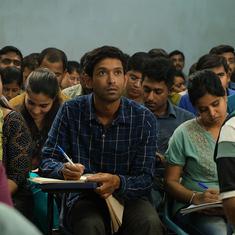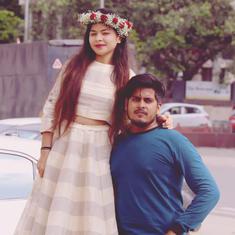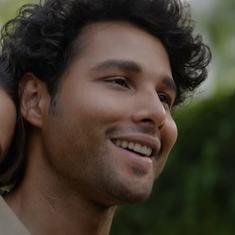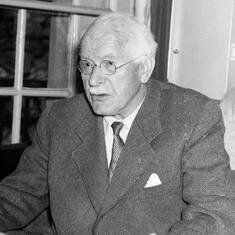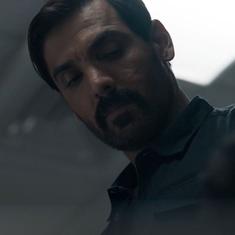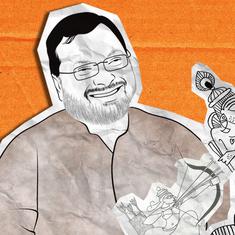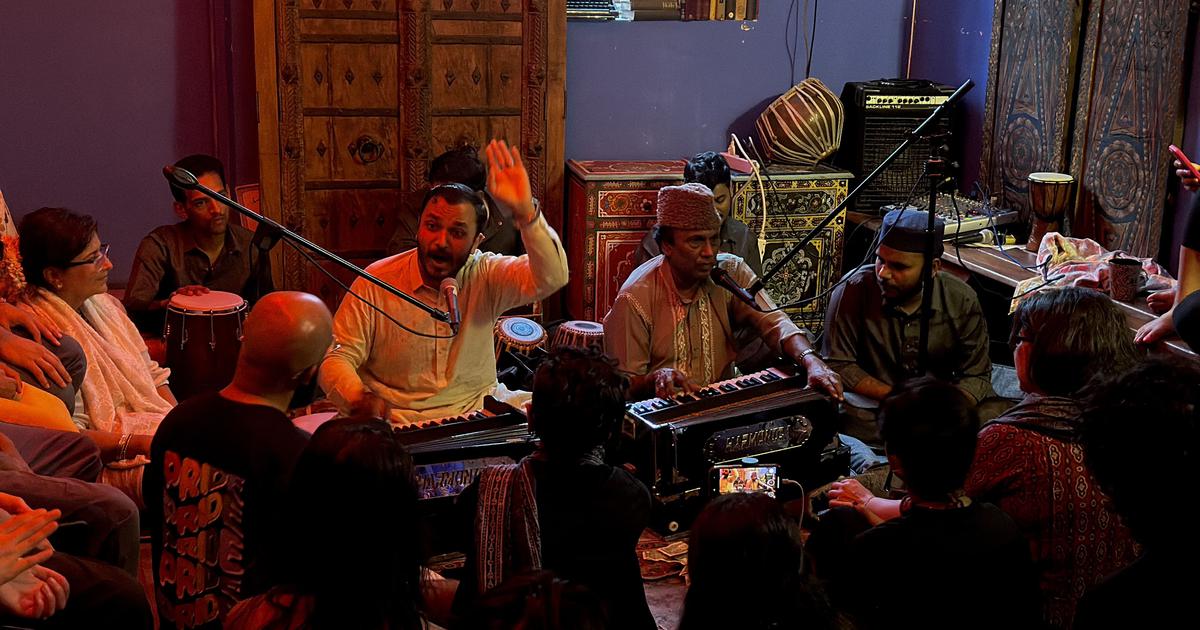A few months ago, when Sadia Khatri, a young writer from Karachi, was helping organise a tribute in New York for Sabeen Mahmud, the Pakistani human rights activist killed in 2015, she didn’t think twice before suggesting that it be held at Barzakh Café.
Located in Brooklyn’s Crown Heights neighbourhood, Barzakh Café was the perfectly intimate venue at which to honour Mahmud’s memory. As the event unfurled on her tenth death anniversary in April, 30-odd people sat on the carpeted floor, reading poems, singing songs they associated with Mahmud and sharing lessons they had gleaned from the feisty activist.
Barzakh Café, said Khatri, “was just so warm”.
That’s exactly the atmosphere El Atigh Abba, an immigrant from Mauritania in Northwest Africa, had been seeking to create when he founded Barzakh Café in mid-2024. He wanted the establishment to look and feel like the house in which he grew up in Nouakchott.
The café’s performance area is arranged to resemble his old living room and the backyard has been inspired by the garden behind his childhood home – complete with a mango tree.
Most of all, Abba wanted the space to be a “social experiment” to bring together the diverse residents who represented New York’s rich cultural mosaic. That ambition is embodied in the name he chose for his café: Barzakh, in Arabic, refers to the place where souls rest until the day of resurrection.
The programming in July reflected his intentions. The café has organised qawwali performances, a “couscous night” with five international chefs and an evening of Egyptian and Tunisian music.
“It’s not the East, and neither is it the West,” said Abba, “It’s an oasis” – one where everyone is welcome, despite rising tensions not just around the world, but in the US itself.
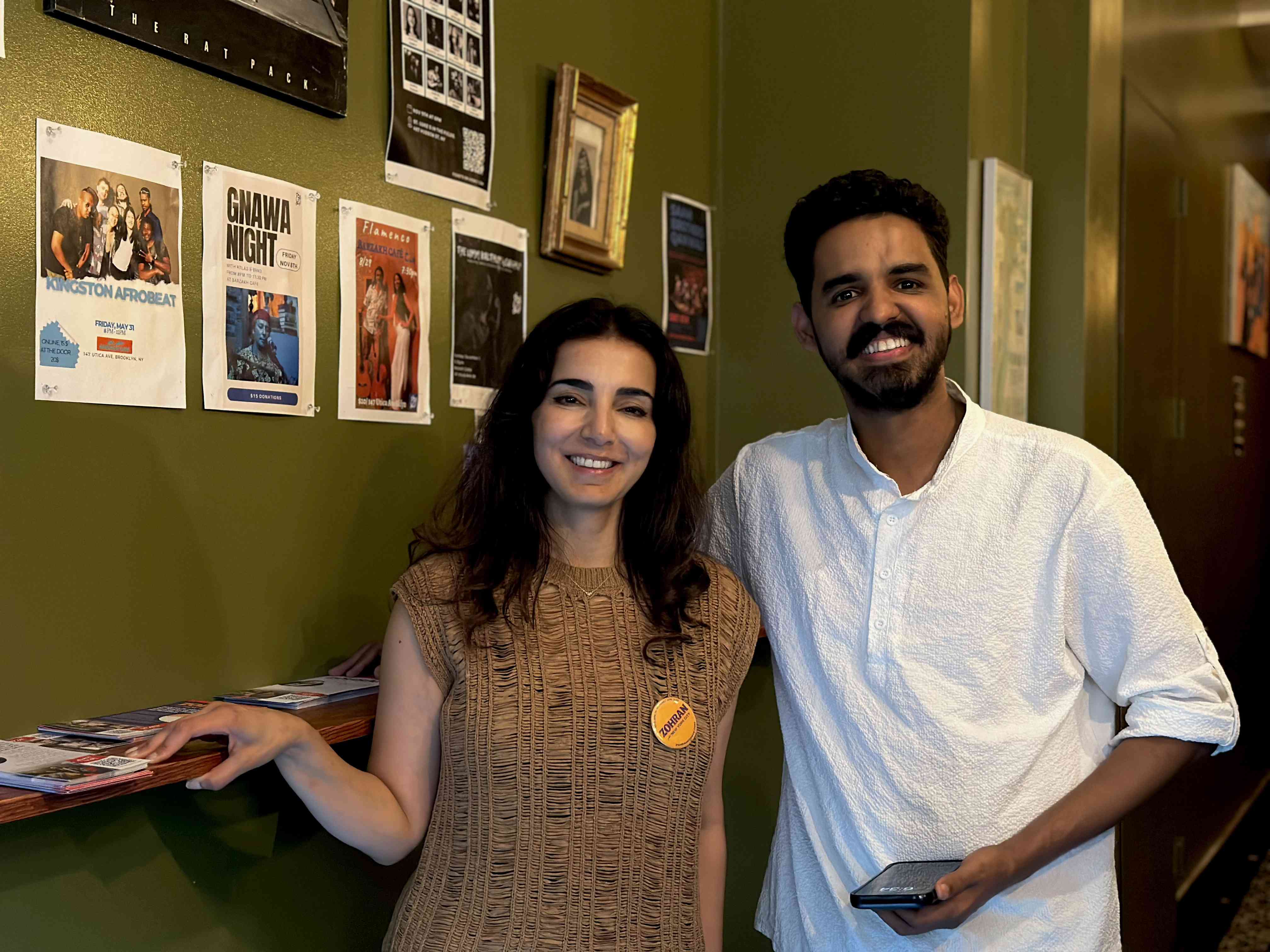
That inclusive spirit is what patrons have immediately been drawn to. Revantika Gupta, a PhD student at New York University who is making a short film about the space, asserted that the café’s efforts are “very moving”.
While she began coming to Barzakh Café for its qawwalis, she has been in awe of the sense of community it has created in the middle of New York City.
“They have managed to host cultural events, while also organising conversations around Palestine involving communities from across religious and regional affiliations,” she said. That is what inspired her to shoot a film about it for a class project.
It showcased the space like a character – from its wooden stools, filled bookshelves, to a hanging keffiyeh.
Shazia Choudri, a British immigrant with Pakistani roots, first visited the café with friends for an Eid dinner shortly after it opened its doors. Charmed by what the establishment was trying to do, she joined forces with Abba. She co-founded Beyond Barzakh, an initiative to take the café’s community events beyond its walls.
Since December 2024, Beyond Barzakh has also been hosting a monthly majlis – the Arabic word for gathering.
From kathak by young South Asian students in Brooklyn’s Dumbo area, to a gathering that hosted the city’s Democratic mayoral nominee Zohran Mamdani to engage with New Yorkers during his campaign at a church in Manhattan’s West Village, Barzakh has been been trying to bring residents who are not part of the mainstream to the centre.
The café’s own engagement list has about 400,000 people, said Choudri.
“There’s a deep search for identity in this city,” said Choudri, who moved to New York City in 2002. “For so many people who come here, they feel at home. A home where no one is the other”.
That was evident one recent Sunday night at a Sufi music event at the Brooklyn café. It drew Muslim and Hindu South Asians, Middle Easterners, North Africans and many who had lived in New York all their lives.
Even its modest menu reflects tastes from different corners of the world. It ranges from different kinds of teas, Arabian kabsa, to cashew baklavas. For those hanging around the bar, there is also some beer and wine to go along with the food and its events.
Kaleem Ullah, a literature student from Austin, said he was drawn to the café because he found it “familiar”.
“Its doors are those I know from northern Sindh,” he said. “And floor seating I know from anywhere home”.
New York City is home to over 5.8 million immigrants – almost 30% of its total population. One in three children has immigrant parents, according to a study by the nonprofit think tank Vera Institute.
Some neighbourhoods have become hubs for specific immigrant communities. Richmond Hill, for instance, has a strong Indo-Caribbean flavour while Washington Heights has many Dominican residents. What is lacking, say Choudri and Abba, is a space for residents of these various neighbourhoods to come together.
That’s what Barzakh Café is attempting to provide.
A glimpse of this was on display one recent night as six musicians from the Qawwal Bachchon Ka Gharana of Delhi performed renditions of some of the most renowned Sufi poems such as Mera Piya Ghar Aaya by Bulleh Shah and Lal Meri Pat by Amir Khusrou.
The audience was transported. The room was filled. Some perched on stools, while others sat cross-legged on the carpet.
From 25-year-old international students to 70-year-old retirees who have called New York home for decades, everyone sang along.
At some point during the three-hour performance, as more people kept pouring in, there simply didn’t seem to be enough space for everyone. That did not seem to matter. Everyone seemed to adjust – some stood along the bookshelves, others moved behind the white curtain that separated the bar from the performance area.
According to a group of three regulars, this was no exception. This was the kind of crowd the café pulls in all the time.
As the qawwali ended that Sunday night, more than half of the audience lingered around. Some spoke to the musicians, while others exchanged phone numbers and made plans to meet again.
Almost everyone walked up to Abba before they left the café that night. Many thanked him for creating that space, and many more promised to come back to Barzakh with their parents, siblings and friends.
“I have seen people propose to each other at Barzakh. We have catered wedding gatherings, and know of people who met here and are now about to start their own families,” said Abba, as he chatted with every guest like he has known them forever. “So this community right here? This is the real movement”.

